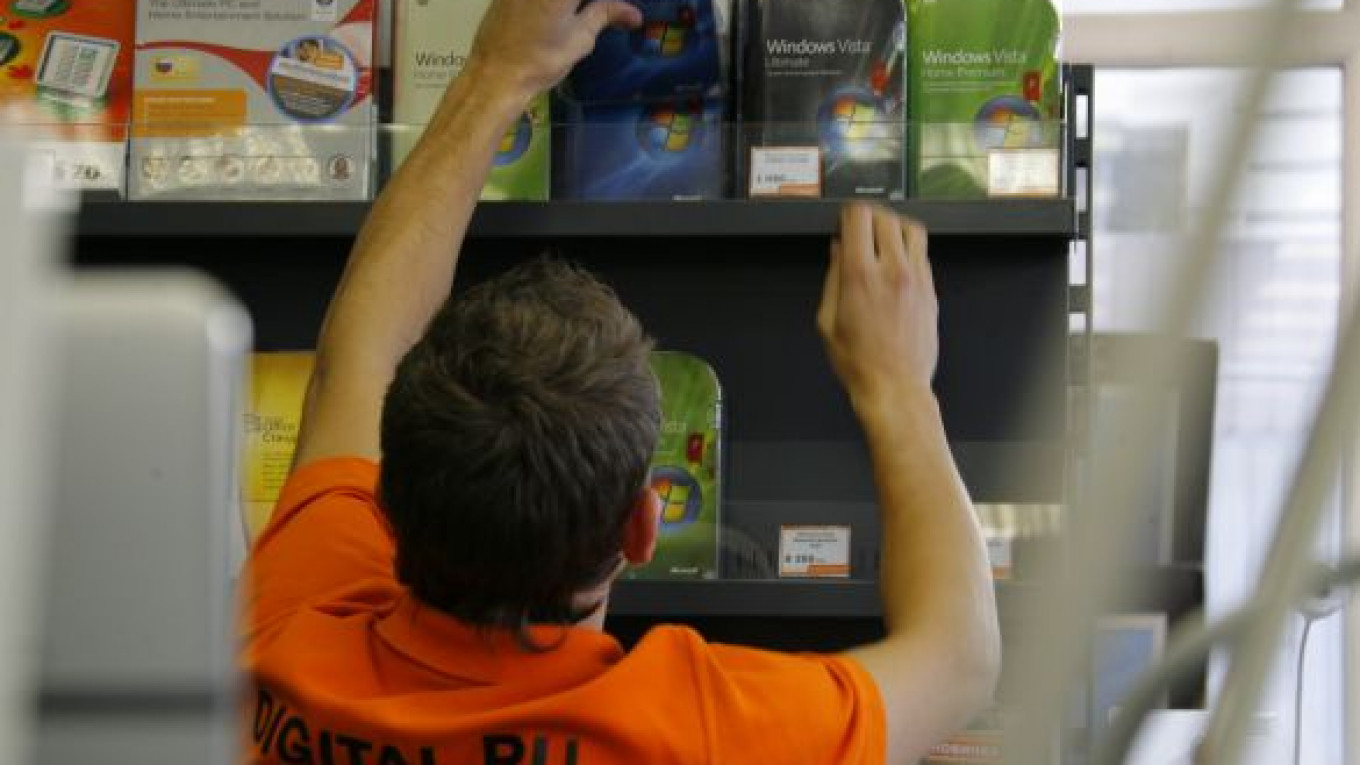Microsoft Corporation has said it will temporarily legalize pirated software used by Russian nongovernmental organizations and independent news media in an effort to shield them from attacks by authorities who crack down on critics by accusing them of violating the company’s copyrights.
Microsoft will issue a “unilateral NGO software license” that will run automatically until 2012 and cover “the software already installed on their PCs,” Microsoft’s senior vice president Brad Smith said on his blog on Monday. NGOs and independent news organizations won’t need to take any steps to benefit from the license’s terms, he said.
The move will hopefully prevent NGOs from falling victim to “nefarious actions taken in the guise of anti-piracy enforcement,” Smith said.
“Now our information will fully exonerate any qualifying NGO, by showing that it has a valid license,” he wrote.
Come 2012, Microsoft wants to move NGOs to its existing donation program, Infodonor, because it better enables organizations to keep their software up-to-date. The temporary legalization of pirated software stems from the fact that some NGOs in a number of countries, including Russia, are unaware of the program or do not know how to navigate the process, which involves ordering the donated software through a Microsoft partner, Smith said.
Last year, the company donated $390 million worth of software to 42,000 NGOs around the world.
Smith’s statement came as a reaction to an article in The New York Times on Saturday that said legal experts working on behalf of Microsoft had helped Russian law enforcement agencies provide copyright violation evidence in court against NGOs, effectively facilitating a government crackdown on dissent.
In one such case, the police accused Alexandra Denisova, an activist of the Ethnica NGO, of using illegal software at her company in Krasnodar in 2009. The case was brought after complaints by a legal anti-piracy expert and a regional Microsoft software distributor.
Prosecutors may have seized the opportunity to go after Denisova because she had long irked the authorities, especially by communicating with Georgian NGOs, said Alexander Verkhovsky, deputy director of Sova, a Moscow-based NGO.
“Regional authorities have always treated her negatively,” he said. “It was of particular concern that she was in a dialogue with Georgian NGOs.”
Police later dropped the charges after the court sent the case back to them for additional investigation in May.
Denisova could have been sentenced to up to six years in prison if convicted.
Another case was about Baikalskaya Volna, an NGO based in Irkutsk. The group, known for its campaign to close down the Baikalsk Paper and Pulp Mills, was also accused of using illegal software. In January, police confiscated several computers from their office.
Microsoft said earlier that illegal computer software in Russia remained rampant. It stated in June last year that it was losing more than $1 billion every year because of Russian pirates.
According to a Microsoft investigation in May, about 22 percent of 3,000 randomly checked sales points in 53 Russian cities sold illegal software. The investigation was done by Microsoft employees who posed as customers.
NGOs account for a tiny part of software users, meaning that anti-piracy efforts will have to continue at full swing, said Alexei Maximov, editor of the Russian edition of PC Week.
Alexander Brod, head of the Moscow-based Human Rights Bureau, said Microsoft took into account the “poor condition of our human rights groups.”
A Message from The Moscow Times:
Dear readers,
We are facing unprecedented challenges. Russia's Prosecutor General's Office has designated The Moscow Times as an "undesirable" organization, criminalizing our work and putting our staff at risk of prosecution. This follows our earlier unjust labeling as a "foreign agent."
These actions are direct attempts to silence independent journalism in Russia. The authorities claim our work "discredits the decisions of the Russian leadership." We see things differently: we strive to provide accurate, unbiased reporting on Russia.
We, the journalists of The Moscow Times, refuse to be silenced. But to continue our work, we need your help.
Your support, no matter how small, makes a world of difference. If you can, please support us monthly starting from just $2. It's quick to set up, and every contribution makes a significant impact.
By supporting The Moscow Times, you're defending open, independent journalism in the face of repression. Thank you for standing with us.
Remind me later.






